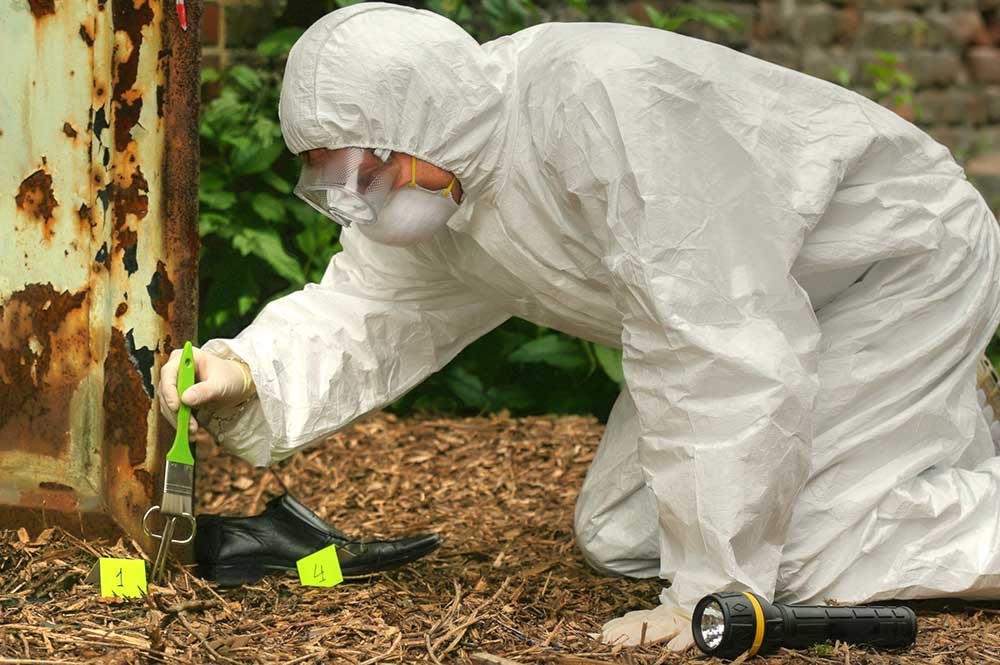
PM [1]
Rank : Helper
Status : Super Owner
#1

## A Career in Forensic Science: A Guide to the Field
Forensic science is a captivating field that combines scientific knowledge with criminal justice. It involves the application of scientific principles and techniques to solve crimes and legal issues. If you're intrigued by the world of crime investigation and have a passion for science, a career in forensic science might be the perfect fit for you.
### What Does a Forensic Scientist Do?
Forensic scientists are involved in various aspects of criminal investigations, including:
Collecting and analyzing evidence:
They collect evidence from crime scenes, such as fingerprints, DNA, blood spatter, and trace evidence.Performing laboratory tests:
They analyze evidence in the lab using specialized equipment and techniques to identify substances, determine the cause of death, and match samples to suspects.Preparing reports and testifying in court:
They prepare detailed reports on their findings and may be called upon to testify in court as expert witnesses.### Different Specializations in Forensic Science:
The field of forensic science offers a wide range of specializations, each with its own unique focus. Some common specializations include:
Forensic Biology:
Analyzing biological evidence like blood, DNA, and tissue to identify individuals and connect them to crime scenes.Forensic Chemistry:
Analyzing non-biological evidence like drugs, explosives, and paint to identify substances and determine their origin.Forensic Toxicology:
Analyzing biological samples like blood and urine to detect the presence of drugs, alcohol, and other toxins.Forensic Pathology:
Investigating the cause and manner of death by performing autopsies and examining tissues and organs.Forensic Anthropology:
Examining skeletal remains to identify individuals, determine their age, sex, and cause of death.Forensic Entomology:
Analyzing insects found on or near bodies to estimate the time of death.Forensic Ballistics:
Analyzing bullets and firearms to identify the weapon used in a crime.Forensic Document Examination:
Analyzing handwriting, documents, and other materials to determine authenticity and identify the writer.### How to Become a Forensic Scientist:
The path to becoming a forensic scientist typically involves:
1.
Education:
A bachelor's degree in a science field such as biology, chemistry, or forensic science is essential. A master's degree or doctorate may be required for more specialized roles.2.
Practical Experience:
Gaining practical experience through internships, volunteer work, or research opportunities is highly recommended.3.
Certification and Licensure:
Depending on the specialization and location, some forensic scientists may need to obtain certification or licensure.4.
Professional Development:
Continuous learning is important in this field. Stay updated on the latest techniques and technologies by attending conferences and workshops.### What to Expect in a Forensic Science Career:
Challenging and rewarding work:
Forensic scientists play a crucial role in solving crimes and providing justice for victims.High demand for skilled professionals:
The field of forensic science is growing rapidly, making it a competitive but rewarding career.Variety of job settings:
Forensic scientists can work in crime labs, government agencies, universities, and private companies.Attention to detail and analytical skills:
Forensic scientists must be meticulous and have strong analytical skills to accurately analyze evidence.Exposure to sensitive and potentially disturbing material:
Forensic scientists may encounter graphic scenes and evidence, requiring resilience and emotional maturity.### Finding Resources for Your Forensic Science Career:
American Academy of Forensic Sciences (AAFS):
Offers resources, networking opportunities, and certification programs.American Society of Crime Laboratory Directors (ASCLD):
Provides accreditation and professional development opportunities.National Institute of Justice (NIJ):
Funds research and provides training programs in forensic science.### Conclusion:
A career in forensic science is both challenging and rewarding. If you have a passion for science, a keen eye for detail, and a desire to make a difference, this field offers an exciting and fulfilling career path.